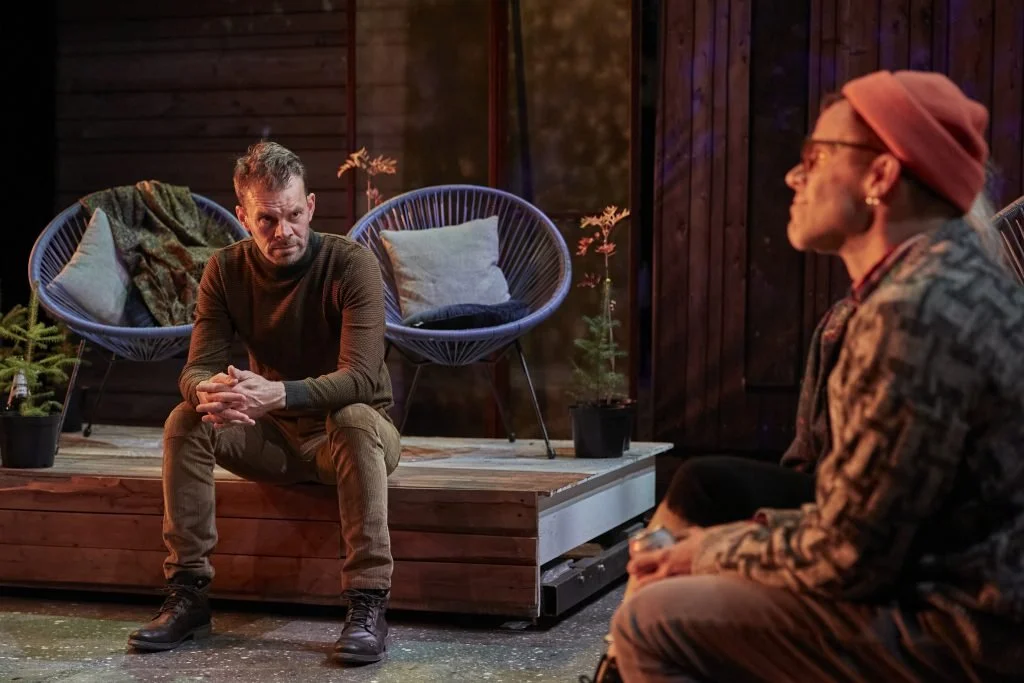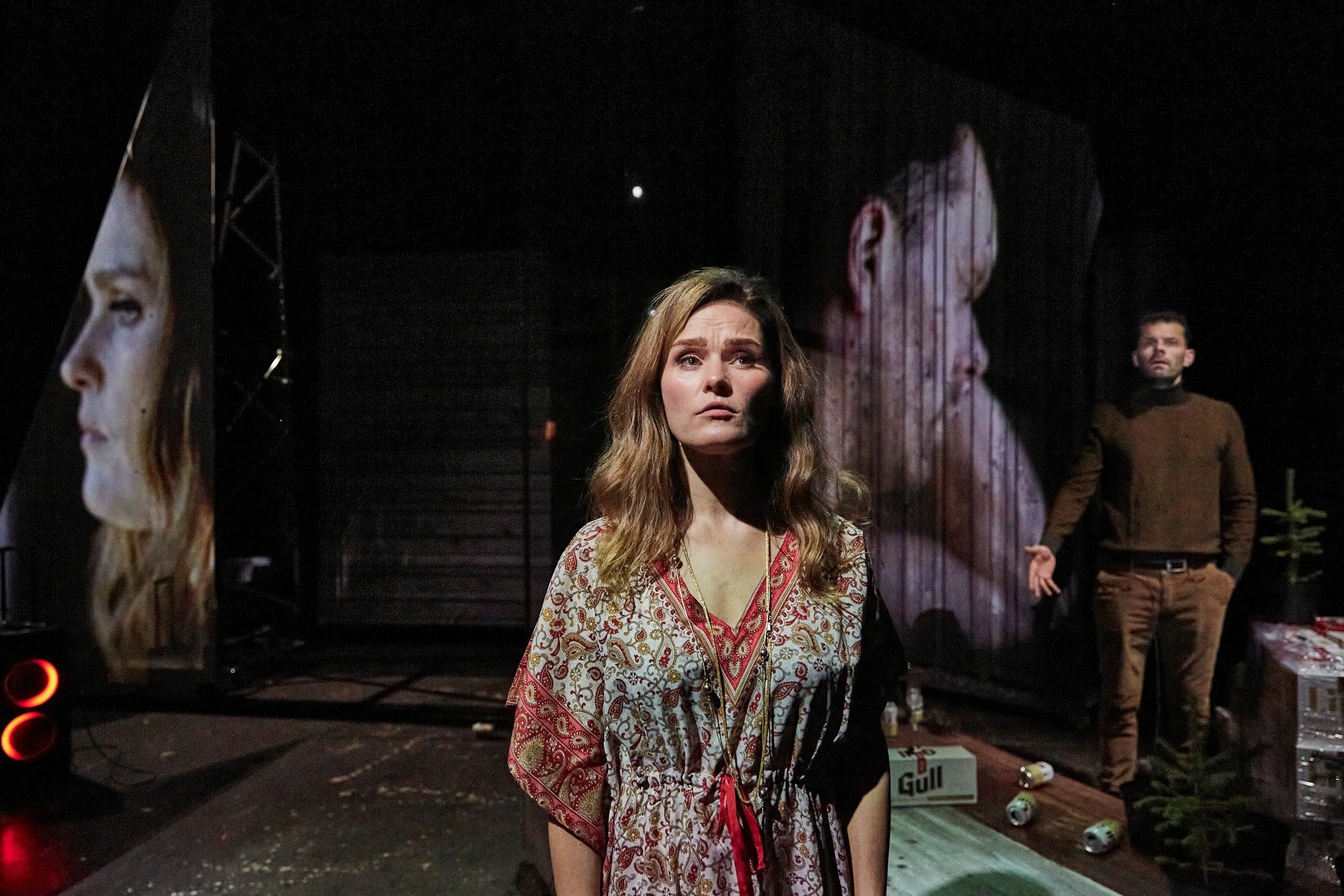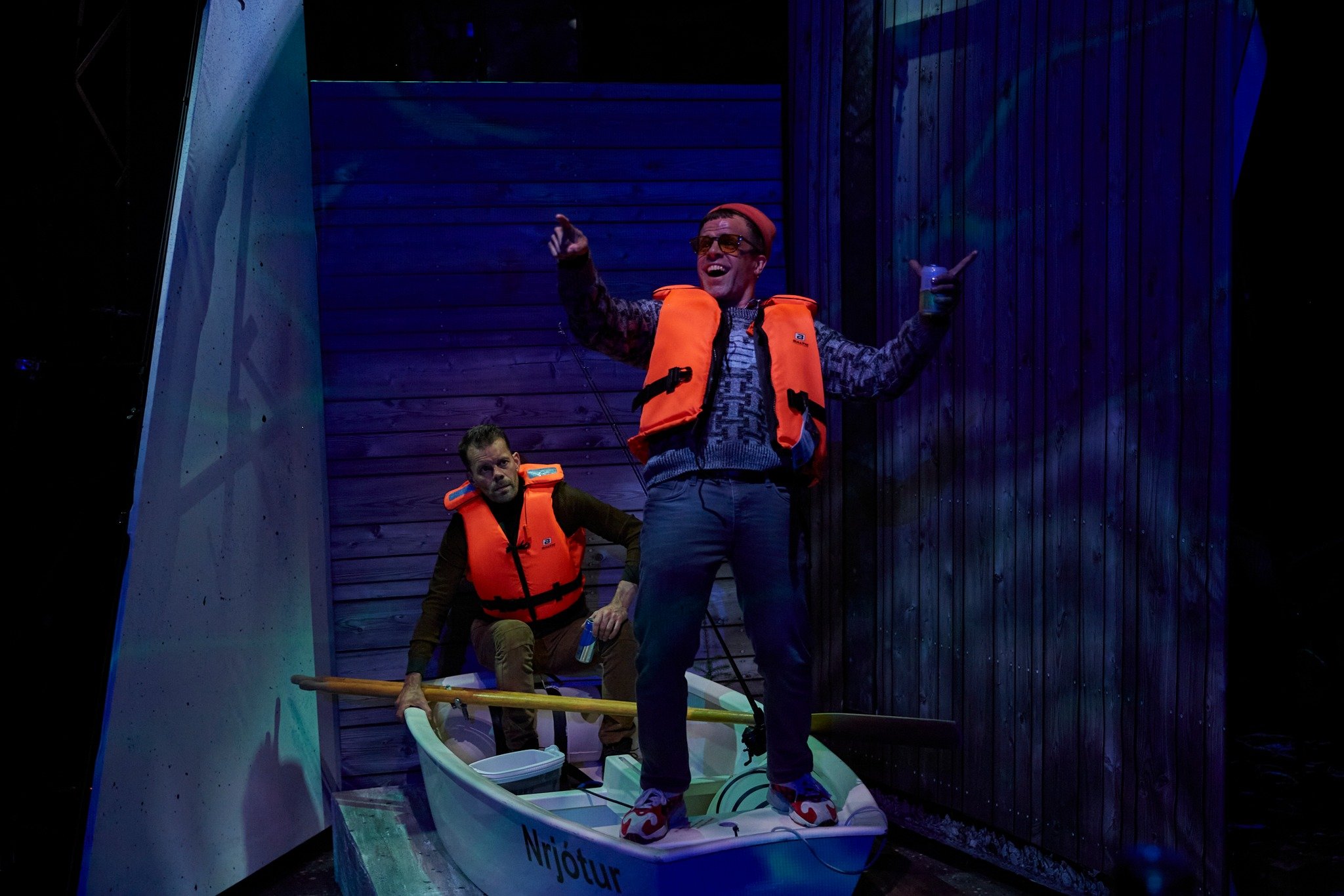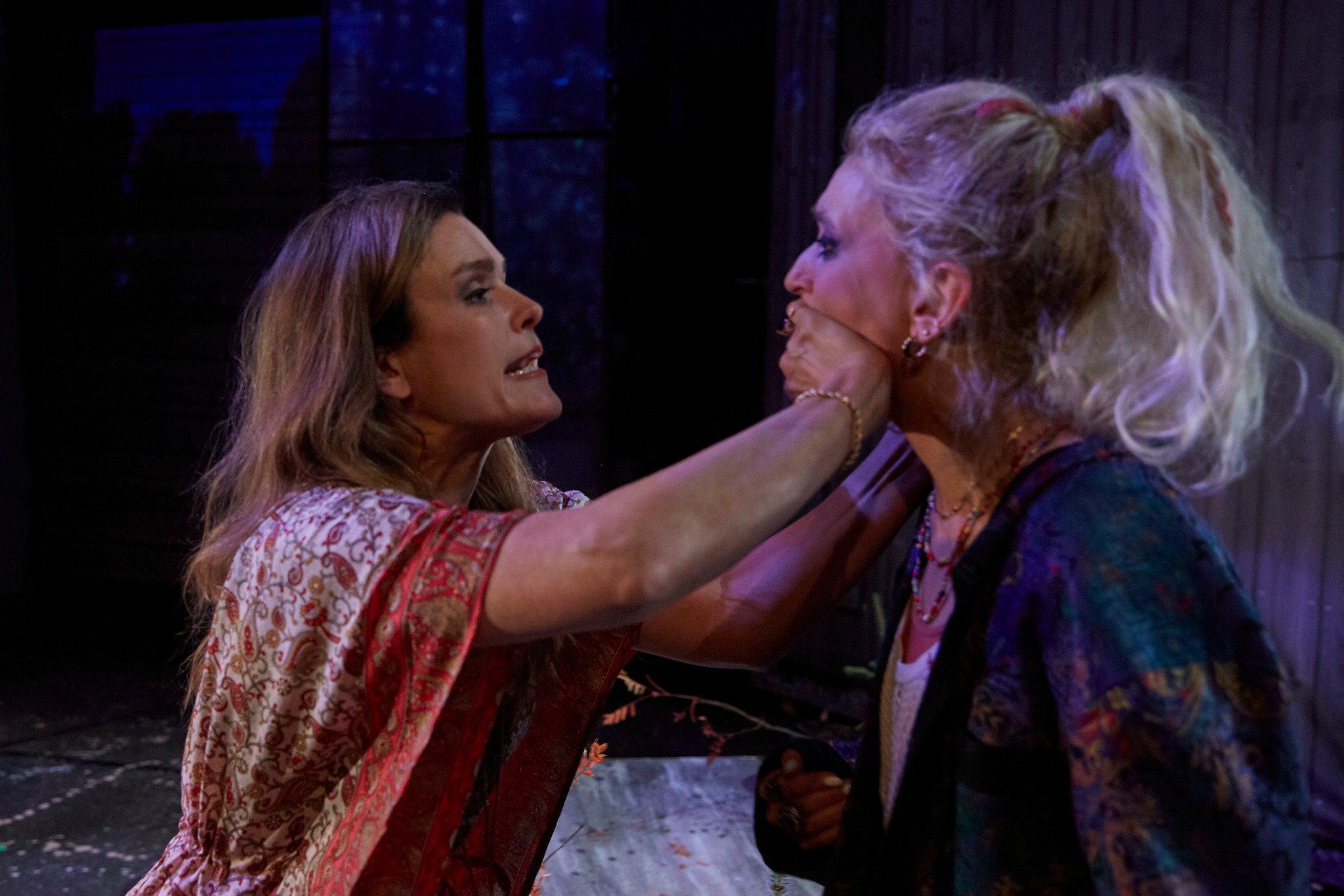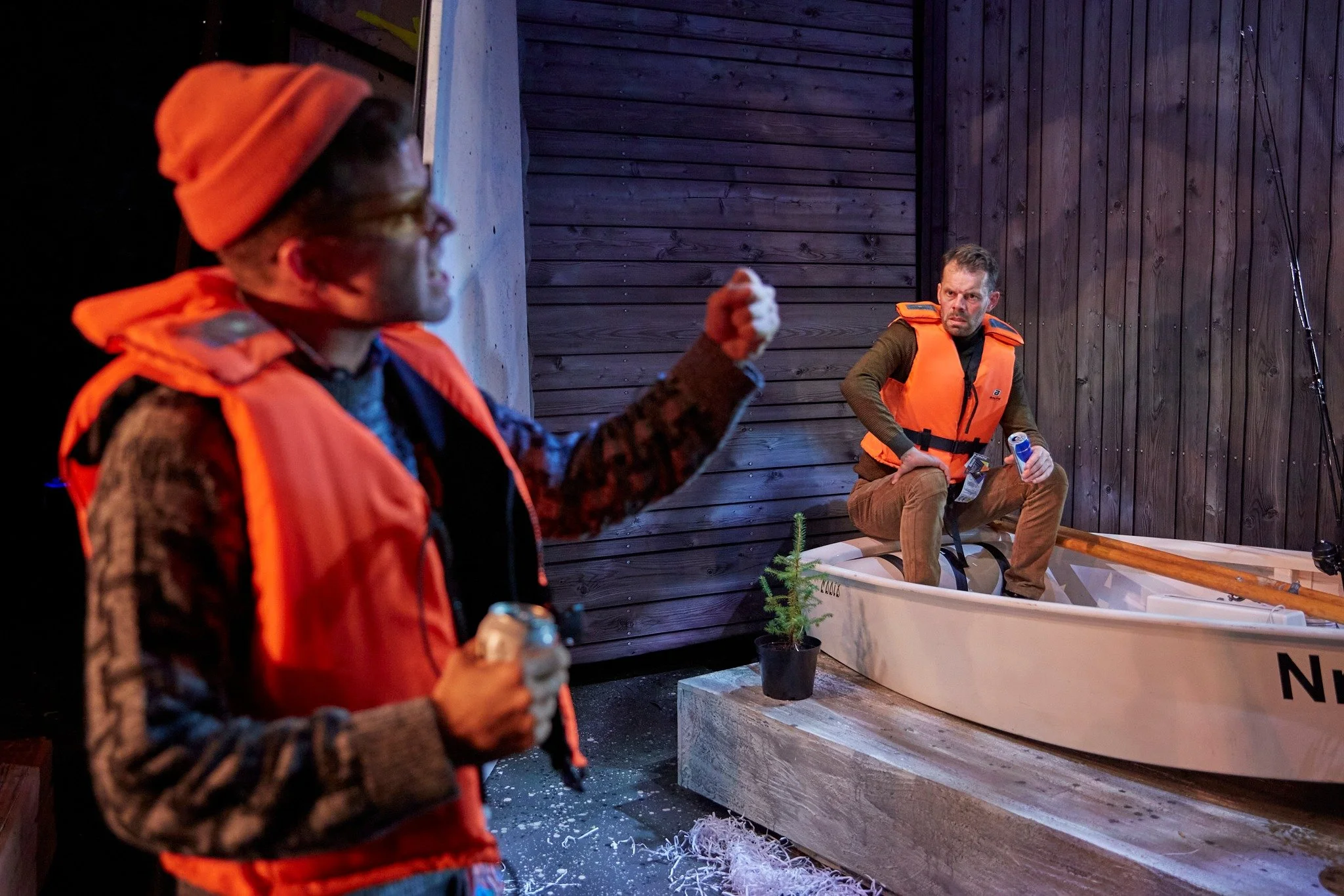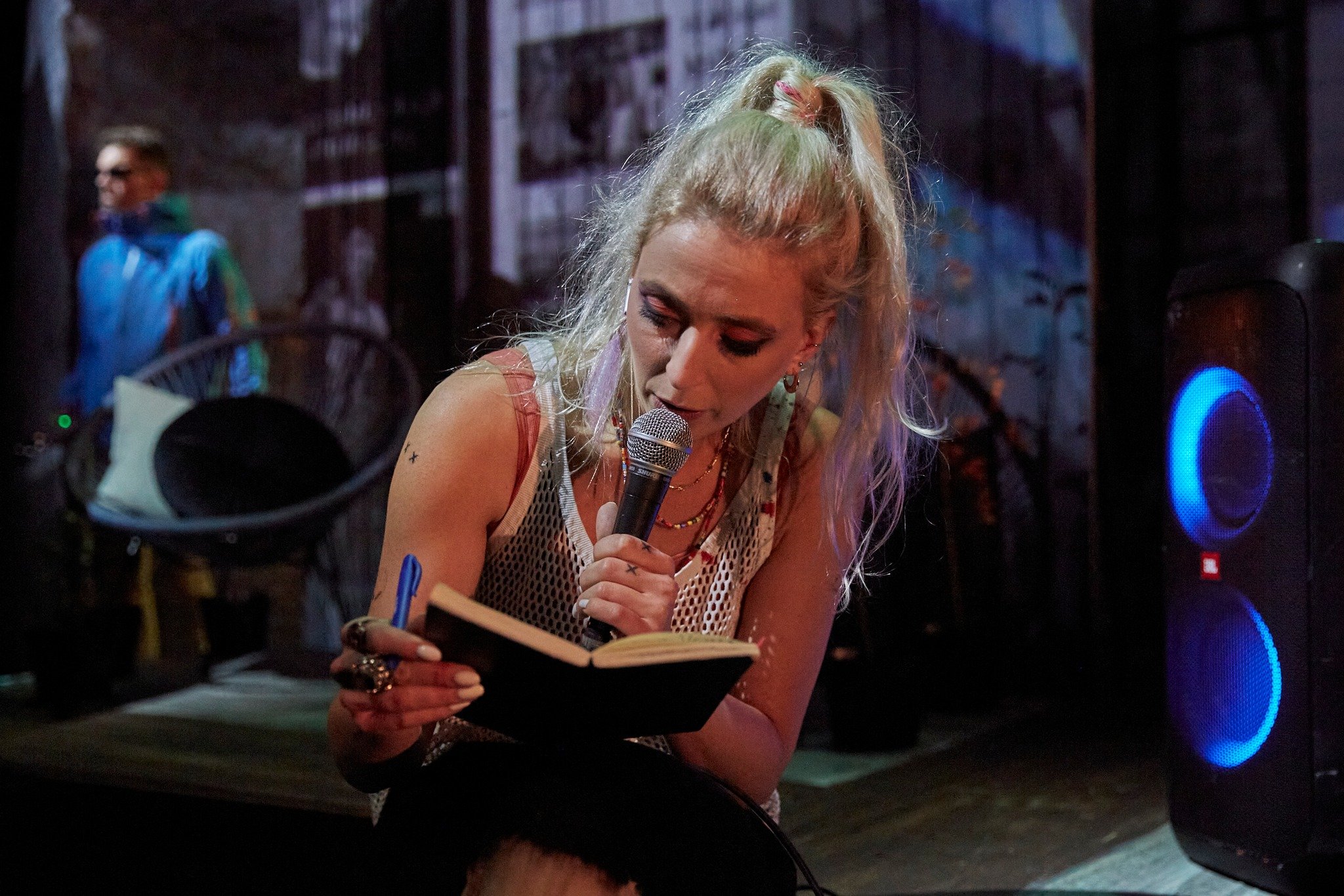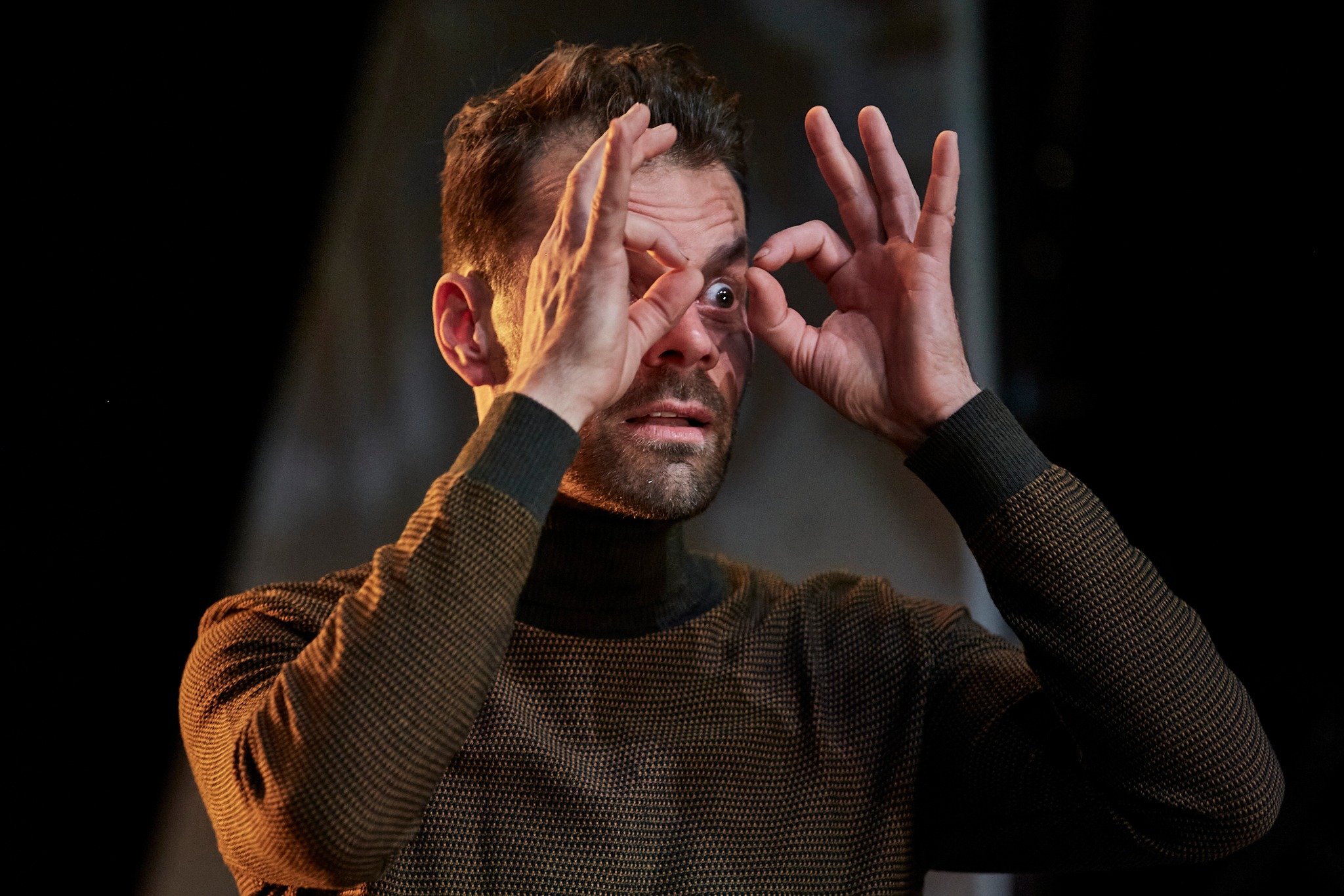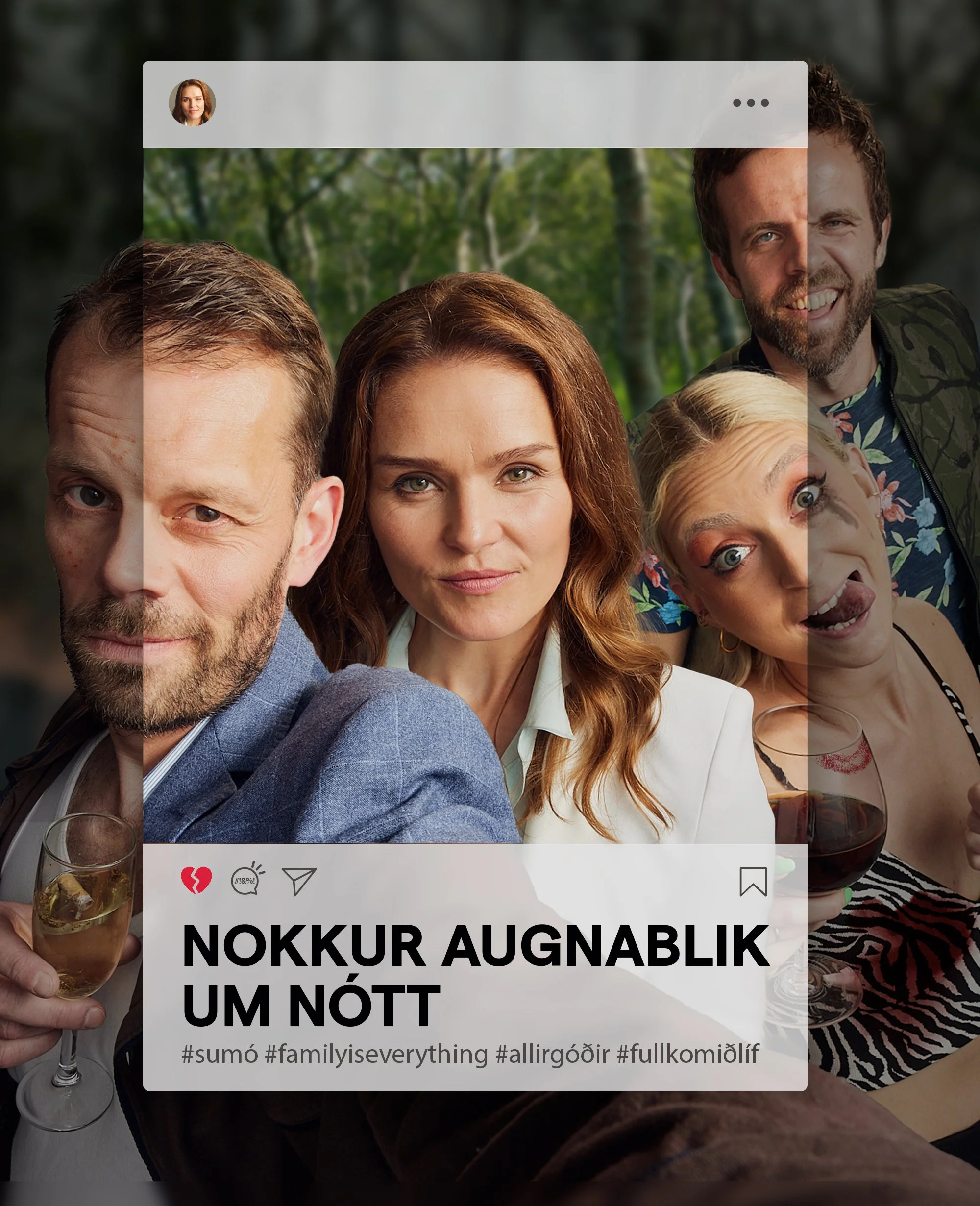Nokkur Augnablik um nótt
The National Theater of Iceland, Reykjavík.
October 2022
Translations available in English, German and Czech.
It's a beautiful evening in the summer cottage. The grill is heating up when Björk introduces her new boyfriend to her older sister Ragnhildur and her husband. The sisters were raised in a broken home, but their lives have taken different paths. Ragnhildur has recently been voted into parliament and is married to the former soccer player Magnús, now a successful entrepreneur. Björk is on the cusp of making it as a star with her punk band and has recently met Óskar, who looks like a nice guy. Surely this must turn out to be a fantastic evening...
A young Icelandic playwright steps forth with a ruthless reflection on current affairs, a riveting piece straight from Scandinavian reality. A tragicomic play about investors, footballers, politicians, artists and social workers: on the surface, the different generations argue about the meaning of life and what it is to be successful, happy or a valued member of society – but underneath, secrets are uncovered, lives splintered, and beliefs shattered.
“A well made play [...] the conversations are about art, politics, soccer, money, happiness and religion and are excellently written; fast paced, witty and funny but mostly revealing. Gradually the stay in this summer house becomes unbearable.”
“Everything is so well executed. The characters are well crafted, deep and sympathetic [...] a fantastic script.”
“Nokkur augnablik um nótt is an exciting play [...] key-themes such as the destructive power of poverty and the reminder that violence in communication doesn’t ask about class or social position, sadly, resonate today. ”
“The audience couldn’t stop laughing in the scenes between the two male characters; scenes that are rich and undertake a deep examination of the ideals portrayed in the play.”
